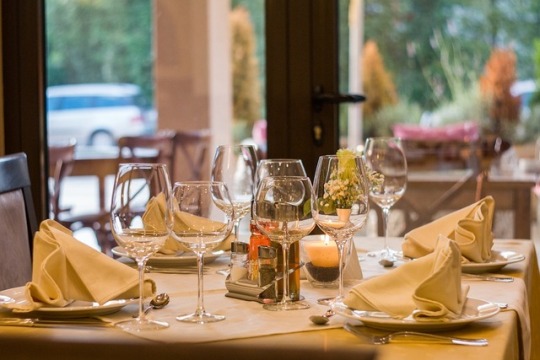Photo

APPS
All the apps listed are free to download (iOS). However, those that are not bolded offer in-app purchases and may require you to upgrade to premium or pay extra to access everything. Bolded = completely free.
Duolingo
Mango Languages
iTunes U (search “French” and browse courses)
WordReference (dictionary)
Quizlet (search for specific topics, such as “French Greetings”)
MosaLingua
Memrise
busuu
Learn French by MindSnacks
Learn French by Brainscape
Penyo Pal (made for kids)
activities and worksheets
Babbel (only one free lesson for each course)
FluentU
Conjugaison
Tigercards (go to “Course Bank” next to the “+” button)
French by Nemo
Radio France
Radios France (not the same as Radio France)
News in Slow French
WEBSITES
Some of these websites are not aesthetically pleasing, but they get the job done.
Carnegie Mellon Elementary French I
Carnegie Mellon Elementary French II
Français Interactif
Tex’s French Grammar
BBC French
Ma France
Lingvist
Livemocha
french.about.com
TV5Monde (click “Émissions” to watch TV shows in French)
Apprendre Le Français Avec TV5Monde
Talk in French
Beginner Level
Intermediate Level
Advanced Level
7 jours sur la planète (video news)
BrainPOP in French
Games for Language
The French Experiment
Bonjour
Informal French and French Slang Tutorial
ielanguages.com
Language Guide
Polymath
MyLanguages
FrenchSpanishOnline
To Learn French
french-online.de
Enhancing French Skills
Quizlet that correlates
QC French
French Vocabulary for Beginners
“Glue” Words
VERBS + CONJUGATION
How To Conjugate French Verbs
Reverso Conjugator
Conjugationfr
Conjuguemos Conjugation Activities
verb2verbe
TEXTBOOKS/WORKBOOKS/BOOKS/DICTIONARIES
Barron’s 501 French Verbs
French-English Bilingual Dictionary
McGraw-Hill Tune Up Your French
Collins French with Paul Noble
Modern French Grammar
Modern French Grammar Workbook
The Complete Idiot’s Guide to Learning Fench on Your Own
French Demystified
Beginning French for the Utterly Confused
Learn French the Fast and Fun Way
Horizons
Easy French Step-by-Step
Practice Makes Perfect French Vocabulary
Practice Makes Perfect Complete French Grammar
Collins Easy Learning French Grammar
Liberté: A First-Year French Textbook
French Learning Package
Rosetta Stone French Level 1
Course Content
Student Workbook
Tests
Answer Key
Rosetta Stone French Level 2
Course Content
Student Workbook
Tests
Answer Key
Rosetta Stone French Level 3
Course Content
Student Workbook
Tests
Answer Key
Bon Voyage Level 1
Textbook
Workbook
Listening Activities (under red book)
Practice Quizzes
Bon Voyage Level 2
Textbook
Workbook
Listening Activities (under green book)
Practice Quizzes
Bon Voyage Level 3
Textbook
Workbook
No Listening Activities :(
Practice Quizzes
French from Wikibooks
French Children’s Stories (such as goldilocks and little red riding hood)
Children’s Books Forever
GET STARTED
Start Learning French
French for Beginners
Self-Study Checklist
i figured i would never be 100% content with this masterpost because i keep finding new things i want to add, so i’m just going to post it now and update it every now and then! bonne chance!! :)
love, @studenting (previously @thestudiousstudent)
16K notes
·
View notes
Text
“faire”
to do :
qu’est-ce que vous faites dans la vie? (job)
mais qu’est-ce que tu fais?? (present time)
faire le ménage (housework)
remplacement of another verb (- can someone please get the umbrella - i just did : je viens de le faire)
to make :
faire la cuisine (cooking)
faire une offre (job, money, house buying)
faire le lit (housework)
to go :
faire les magasins (shopping)
faire les courses (groceries)
faire un tour (stroll)
to play :
faire de l’escalade (sports - regularly)
faire du piano (instruments - regularly)
faire du ski (sports - rarely : to go skiing)
to equal to :
ça fait cinq euros (amount of money)
il fait 1m80 pour 75kg (height/weight)

also :
to be : weather (il fait beau aujourd’hui) + duration (ça fait deux ans)
to suffer from an illness (faire du diabète)
to act like (faire l’idiot, le mort (dead), l’ignorant (fool))
to look + adj : appearance (tu fais plus vieux avec tes lunettes)
to manage to (comment tu as fait ça?)
to act/take care of (laisse-moi faire)
faire la fête : to party (les voisins font la fête tous les week-ends)
faire la tête : to sulk/pout (arrête de faire la tête, enfin)
faire la queue : to wait in line
faire de la peine à : to make someone sad
faire la grasse matinée : to sleep in
faire + infinitive : to make (faire tomber quelque chose : to drop stg)
ça ne fait rien : it’s alright/doesn’t matter
ne faire que : to never stop doing x (elle ne fait que râler)
591 notes
·
View notes
Note
Salut maman, qu'est-ce que la différence between* Commencer à, commencer de, commencer par ? Merci
hello,
commencer à :
is casual and frequently used
means ‘to start to’
is about an unlimited action that can evolve
is followed by an infinitive
can express an order
can express a threat/warning
ex : tu commences à m’agacer!
ex : on va commencer à ranger, maintenant
commencer de :
is rarer and more formal
means ‘to start to’
is about a limited action that can’t evolve
implies an ending
is followed by an infinitive
can express general knowledge
can express a simple statement
ex : je n’ai pas commencé de faire la cuisine
ex : quand le soleil commence de taper, il faut se mettre à l’abri
commencer par :
is casual and frequently used
means ‘to start with’
is about a limited action that can’t evolve
implies a part two
is followed by an infinitive
expresses directions
ex : on va commencer par éplucher les carottes, ensuite on fera la sauce

142 notes
·
View notes
Note
bonjour belle! i've just recently decided to start french but i am having trouble with the alphabet (i know, i'm weak). the accents are really throwing me off -- i don't know where they go or why they're there. merci, au revoir!
hello dear (click on the titles for lists of common words containing those),
the circumflex accent : ^ (l’accent circonflexe)
#1. affects the pronunciation of a, e, and o. #2. often indicates the historical presence of a letter (commonly s) that has, over the course of linguistic evolution, become silent and disappeared. #3. less frequently, is used to distinguish homophones (ex : sur “on” / sûr-e “sure”). in certain words, the circumflex is idiopathic and has no linguistic role.
is used on the o of plural possessive words (le(s) nôtre(s), le(s) vôtre(s))
marks first and second plural persons conjugated at the past tense (nous chantâmes) + third singular person of imperfect subjunctive (qu’il vît),
is used on the i on -ître words (huître (oyster, f), épître (epistle, m),
is used of the i on -aître or -oître verbs (naître (to be born), croître (to grow) + verb plaire (to please) when -i is followed by -t,
is used on the a of the negative suffixe -âtre for adjectives, sometimes nouns : grisâtre (greyish), bellâtre (dandy, m)
the diaeresis : ¨ (le tréma)
you find it mainly over vowels e, i and u, over vowels u and y in last names or locations and over vowels a, o or u in borrowed words. #1. it indicates the necessity of pronouncing separately two graphemes instead of treating them like a couple. #2. it makes a vowel mute. #3. it symbolizes an umlaut (germanic sign). (some words don’t need one and yet their couples of vowels are pronounced separately : oui, poème (poem, m), coincer (to stuck),
é (l’accent aigu sur le e)
can mark the end of nouns. beauté (beauty, f),
marks past participles from the first group (lavé, mangé…) + be (été),
marks a word starting with -e + consonant (éveiller (to wake, v), étirement (stretching, m), émotif/ve (emotional)…),
marks an e stuck between two consonants (hébété-e (dazed) préférer (v)),
is never used before an -x (exemple, m), -f, -d (pied (foot, m)), -r, a final -z (nez (nose, m)) or a double vowel (appeler (to call, v), excellent-e),
è (l’accent grave sur le e)
can be used to make a masculine job noun feminine (a baker : un boulanger, une boulangère ; a farmer : un fermier, une fermière),
helps differenciating similar words from one another (mère (mother, f), mer (sea, f), maire (mayor, m) ; also for other letters : ou (or) / où (where), la (fem the) / là (there), à (at, prep) / a (vb avoir (to have) 3PS present)),
is used on final -s that are not a plural mark (près de (close to)),
is used before syllabes containing a mute -e (fièrement (proudly)),
is never used before an -x (sexe (sex, m), complexe (ep)…),
l’accent grave sur d’autres voyelles :
ù is used in adverbs où (where : où est parti ton père ?) and d’où (from where : d’où arrivent-elles à cette heure?)
à is a preposition with many meanings (je suis à paris cette semaine)
the cedilla : ç (le c cédille)
a cedilla (une cédille) placed in front of a, o and u marks a ss sound, is never used before -e, -i, -y, -ae, -oe and can be used for verbs in -cer for certain persons (nous commençons : we start)

hope this helps! x
2K notes
·
View notes
Note
Bonjour! :) Est-ce que tu pourrais expliquer la différence entre 《merci pour》 et 《merci de》? Par exemple dans la phrase: 《merci de/pour votre visite》? Merci bien!
hello,
merci pour :
expresses gratitude
refers to an event that has happened
is more casual
the speaker and the listener know each other
ex : merci pour ton aide, elle a été précieuse
merci de :
expresses a general rule to follow
refers to the present or the future
is more formal
is often found on written notes
is followed by an infinitive
the speaker or writer addresses anybody
ex : merci de lire en silence
merci à :
expresses gratitude
insists on the interlocutor(s)
is more formal (meeting, wishes, speech, etc)
the speaker and the listener know each other
ex : merci en particulier à marion pour son travail

209 notes
·
View notes
Text
Exist, to be 있다 ある・いる
Not exist 없다 ない・いない
Go 가다 行く 「いく」
Come 오다 来る 「くる」
Go out 나가다 出ていく 「でていく」
Come out, appear 나오다 出てくる 「でてくる」
Return to 돌아가다 帰る 「かえる」
Return, come back 돌아오다 帰ってくる 「かえってくる」
Walk (swh) 걸어가다 歩いていく 「あるいていく」
Go and come back 다녀오다 行ってくる 「いってくる」
Go and come back 갔다 오다 行ってくる 「いってくる」
Eat 먹다 食べる 「たべる」
Drink 마시다 飲む 「のむ」
Do 하다 する
Buy 사다 買う 「かう」
Sell 팔다 売る 「うる」
See, watch 보다 見る 「みる」
Meet 만나가 会う 「あう」
Wait 기다리다 待つ 「まつ」
Ride 타다 乗る 「のる」
Transfer (bus, train, etc) 갈아타다 乗り換える 「のりかえる」
Get off 내리다 降りる 「おりる」
Rest 쉬다 休む 「やすむ」
Sleep 자다 寝る 「ねる」
Get up, wake up 일어나다 起きる 「おきる」
Wear 입다 着る 「きる」
Take off (clothes, etc) 벗다 脱ぐ 「ぬぐ」
Wear (shoes, etc.) 신다 履く 「はく」
Sit 앉다 座る 「すわる」
Line up 줄을 서다 並ぶ 「ならぶ」
Learn 배우다 習う 「ならう」
Teach 가르치다 教える 「おしえる」
Read 읽다 読む 「よむ」
Say 말하다 言う 「いう」
Quit 그만두다 辞める 「やめる」
Give 주다 あげる
Bring 갖다 주다 持ってくる 「もってくる」
Receive 받다 もらう
Send 보내다 送る 「おくる」
Change 바꾸다 変える 「かえる」
Take a photo 찍다 撮る 「とる」
Stop 세우다 止める 「とめる」
Become 되다 なる
Close 닫다 閉める 「しめる」
Close (eyes) 감다 つぶる
Die 죽다 死ぬ 「しぬ」
Smoke 피우다 吸う 「すう」
Go out with, date 사귀다 付き合う 「つきあう」
Be surprised 놀라다 驚く 「おどろく」
Laugh, smile 웃다 笑う 「わらう」
Be late 늦다 遅れる 「おくれる」
Borrow 빌리다 借りる 「かりる」
Hit, play drums 치다 打つ 「うつ」
Flick, to play piano/stringed instruments 치다 弾く 「ひく」
Clean up 치우다 片付ける 「かたづける」
Cross 건너다 渡る 「わたる」
Cross over, go over 건너가다 渡っていく 「わたっていく」
Take time 걸리다 かかる
Count 세다 数える 「かぞえる」
843 notes
·
View notes
Text
(se) + verb #3
some verbs in french are called reflexive : they are preceded by an object pronoun which change the sense of the original verb. sometimes, the verb does not necessarily take a pronoun but it can be added for more precision (ex : casser - to break, but se casser un bras - to break an arm). here are a few :
changer : to change (il a changé depuis l’année dernière)
se changer : to switch outfit (je me change et j’arrive)
cogner : to bang (quelqu’un cogne à la porte)
se cogner : to knock one’s head (je me suis cognée)
pousser : to push (pousse la porte, elle est un peu lourde)
se pousser : to push out of the way (je me suis poussée)
tourner : to turn (tourne à droite à la prochaine intersection)
se tourner : to turn towards (elle s’est tournée vers nous)
vanter : to brag about someone else (ils vantent les talents de leur fils)
se vanter : to brag about oneself (il s’est vanté toute la soirée)
retourner : to come back someone (elle est retournée à paris)
se retourner : to turn around (retourne-toi, je suis juste derrière)
reposer : to put back down (vous reposez ça tout de suite)
se reposer : to rest (je me repose un peu)
expliquer : to explain (il faut expliquer les règles avant de commencer)
s’expliquer : to explain one’s behaviour (explique-toi immédiatement)
préparer : to prepare (j’ai préparé les ingrédients)
se préparer : to get ready (tu te prépares en vitesse et on y va)
sauver : to save (le migrant a sauvé l’enfant)
se sauver : to run away (casual : elle s’est sauvée en entendant l’alarme)
promener : to take on a walk (elles promènent le chien)
se promener : to take a stroll (on est allés nous promener)
qualifier : to qualify of (il l’a qualifiée de brillante)
se qualifier : to get qualified (elle s’est qualifiée pour la finale)

435 notes
·
View notes
Text
(se) + verb #1
some verbs in french are called reflexive : they are preceded by an object pronoun which change the sense of the original verb. sometimes, the verb does not necessarily take a pronoun but it can be added for more precision (ex : casser - to break, but se casser un bras - to break an arm). here are a few :
prendre : to take
se prendre (pour) : to think one is (tu te prends pour qui?)
excuser : to excuse (excuse son comportement)
s’excuser : to apologize
appeler : to call (appelez votre mère)
s’appeler : to be named (je m’appelle marianne)
manger : to eat
se manger : to bump into (casual : je me suis mangé un mur)
occuper : to occupy (les manifestants occupent l’entreprise)
s’occuper : to take care of (je m’occupe de tout)
essayer : to try (elle essaiera d’y aller en mars)
s’essayer : to try to learn a new skill (je m’essaie à la peinture)
lever : to raise (levez vos verres)
se lever : to get up (je me suis levée très tôt ce matin)
attendre : to wait (nous attendions le facteur)
s’attendre (+ à) : to expect (je m’attendais à ta visite)
passer : to pass (le temps passe doucement)
se passer : to happen (qu’est-ce qu’il se passe?)
se passer de : to do without (on se passera de tes commentaires)
sentir : to smell (elles sentent bon, tes roses)
se sentir : to feel (je me sens tellement bien en ce moment)

417 notes
·
View notes
Photo

— A2 vocab: —
gute Eigenschaften / Characterzüge - good character traits
bescheiden - modest
ehrlich - honest
ernst - serious
fleißig ≈ arbeitsam - diligent, hard-working
fröhlich - cheerful
geduldig - patient
gerecht - rightful
höflich - polite
klug - smart
intelligent - intelligent
interessant - interesting
lustig - funny
mutig - brave
nett ≈ freundlich - nice, friendly
offen - open
ruhig - calm, quiet
selbstsicher ≈ selbstbewusst - self-confident
sympathisch - pleasant
tolerant - tolerant
treu - faithful, loyal
vernünftig - reasonable
— B2 vocab —
anpassungsfähig - flexible, adaptable
aufrichtig - straightforward
ausgeglichen - balanced
gehemmt - inhibited
großzügig - generous
hilfsbereit - helpful
kultiviert - cultured
locker - relaxed, cool
mitfühlend - sympathetic
reif - mature
respektvoll - respectful
rücksichtsvoll - considerate
selbstlos - unselfish
sensibel - sensitive
taktvoll - tactful
temperamentvoll - temperamental
verantwortungsbewusst - responsible
zuverlässig ≈ verlässig - trustworthy, steady
4K notes
·
View notes
Text
small talk in french 💬
⭐️ (for beginners) ⭐️
When talking to french people, focus on innocuous topics like the weather, current events (“avez-vous lu à propos de..?” Have you read about…?), and cultural topics like food, movies, art, music, and so on. And remember to use vous instead of tu!
I only speak a little French. Je ne parle qu'un peu le français.
I am learning French, but I am only a beginner. J'apprends le français mais je ne suis qu'un débutant.
I have been learning french for 2 days / 2 weeks / 2 months / 1 year / 2 years. J'apprends le français depuis deux jours / deux semaines / deux mois / un an / deux ans.
Will you please correct me? Peux-tu me corriger, s'il te plaît?
What does ___ mean? Que veut dire ___?
What does that mean? Qu'est-ce que ça veut dire?
Can you explain in French/English to me? Peux-tu m'expliquer en français / anglais?
What does that mean in this context? Qu'est-ce que ça veut dire dans ce contexte?
What is the French word for ___? Quel est le mot français pour ___?
Is this/that correct? C'est juste?
Am I wrong? Je me trompe?/Est-ce que j'ai tort?
Am I correct? Est-ce que j'ai raison?
Do you understand? Est-ce que tu me comprends?
I do not understand. Je ne comprends pas.
I want to improve my level in French. Je veux améliorer mon niveau de français.
I need to practice French. J'ai besoin de pratiquer le français.
Do you have time to speak with me? As-tu le temps de parler avec moi ?
Can you help me to learn French? Peux-tu m'aider à apprendre le français?
Do you mind if we speak in French? Ça te dérange si nous parlons en français?
Can you please speak in French? it helps me to learn. Peux-tu me parler en français s'il te plaît? Ça m'aide à apprendre.
How do you say ’___’ in French? Comment dit-on ’___’ en français ?
I struggle with spelling / reading / writing / listening / pronunciation. J'ai du mal avec l'orthographe / la lecture / l'écriture / la compréhension orale / la prononciation.
Can you please repeat? I did not understand. Pouvez-vous répéter s'il vous plaît ? Je n'ai pas compris.
I don’t speak French fluently. Je ne parle pas couramment le français.
I am confused. Je suis perdu(e).
I don’t know how to say it in French. Je ne sais pas comment le dire en Français,
Sorry (or ‘pardon’), what did you say? Pardon, qu'est-ce que tu as dit?
I’ve never heard of that. Je n'ai jamais entendu ça.
That makes sense. Ça se tient.
That does not make sense. Ça n'a aucun sens.
What’s happening? / What’s going on? Qu'est-ce qui se passe?
What do you mean by ’___’ ? Qu'est-ce que tu entends par ’___’? / Qu'est-ce que tu veux dire par ’___’?
⭐️ Personal Stuff ⭐️
Here is a list of phrases you can use and practice when giving and asking for personal information. Take note that the list makes use of the formal “vous”.
Comment vous appelez-vous? What is your name?
Je m'appelle Christine. My name is Christine.
Quel est votre nom? What is your name?
Comment allez-vous? How are you?
Je vais bien, merci. I am doing well, thank you.
Très bien, merci. Very well, thank you.
Quel âge avez-vous? How old are you?
J'ai # ans. I am # years old.
J'ai trente ans. I am thirty years old.
J'ai quarante-deux ans. I am forty two old.
Quelle est votre nationalité? What is your Nationality?
Je suis canadien(ne). I am Canadian.
Je suis américain(e). I am American.
Je suis chinois(e). I am Chinese.
Je suis coréen(ne). I am Korean.
Où habitez-vous? Where do you live?
J'habite en Californie. I live in California.
Quel est votre numéro de téléphone? What is your phone number?
Mon numéro de téléphone est le … My phone number is …
Où êtes-vous né(e)? Where were you born?
Je suis né(e) à… I was born in…
Êtes-vous marié(e)? Are you married?
Oui, je suis marié. Yes, I am married
Non, je ne suis pas marié. No, I am not married
Je suis célibataire. I am single
Est-ce que vous avez des frères et soeurs? Do you have any brothers and sisters?
Je suis fille unique. I am an only child/daughter
Je suis fils unique. I am an only child/son
J'ai - frère(s). I have - brother(s).
J'ai - soeur(s). I have - sisters(s).
Je n'ai pas de frères. I don’t have any brothers.
Je n'ai pas de soeurs. I don’t have any sisters.
Quel est votre métier? What is your job?
Quelle est votre profession? What is your profession?
Que faites-vous dans la vie? What do you do for a living?
Je suis ingénieur. I am an engineer.
Je suis boulanger/boulangère. I am a baker.
Je suis médecin. I am a doctor.
Je suis infirmier/infirmière. I am a nurse.
⭐️ Interests ⭐️
Quel est votre sport préféré? What is your favorite sport? (formal)
Quel est ton sport préféré?
What is your favorite sport? (informal)
Mon sport préféré est… My favorite sport is….
J'aime faire du sport et garder la forme. I like to do sports to keep fit.
Quelle saison préférez-vous? What season do you prefer? (formal
Quelle saison préfères-tu? What season do you prefer? (What season is your favorite?) (informal)
Quels sont vos passe-temps préférés? What are your favorite pastimes? (formal)
Quels sont tes passe-temps préférés? What are your favorite pastimes? (informal)
Mes passe-temps préférés sont… My favorite pastimes are…
Qu'est-ce que vous faites dans votre temps libre? What do you do in your free time? (formal)
Qu'est-ce que tu fais dans ton temps libre? What do you do in your free time? (informal)
Est-ce que vous avez un animal de compagnie? Do you have a pet?(formal)
Est-ce que tu as un animal de compagnie? Do you have a pet? (informal)
Non, Je n'ai pas un animal de compagnie. No, I don’t have a pet.
Oui, J'ai un chat. Yes, I have a cat.
Oui, J'ai un chien.Yes, I have a dog.
Qu'est-ce que vous aimez? What do you like?
J'aime le jazz. I like jazz.
J'aime le rock. I like rock.
J'aime le hip-hop. I like hip-hop.
Je n'aime pas le rap. I don’t like rap.
Je n'écoute pas de la musique très souvent. I don’t listen to music very often.
J'aime les films d'amour. I like romance films.
J'aime les films d'aventures. I like adventure films.
Je n’aime pas faire du ski. I don’t like skiing.
Qu'est-ce que vous aimeriez faire dans la vie? What would you like to do in life ?
J'aimerais être chef. I would like to be a chef.
J'aimerais être un bibliothécaire. I would like to be a librarian.
23K notes
·
View notes
Photo

DUTCH VOCABULARY: RESTAURANTS
NOUNS:
the restaurant - het restaurant
the menu - de menukaart
the meal - de maaltijd
the dish - het gerecht
the appetizer/starter - het voorgerecht
the main course - het hoofdgerecht
the side dish - het bijgerecht
the dessert - het nagerecht / het dessert
the tip - de fooi
the fork - de vork
the knife - het mes
the spoon - de lepel
the plate - het bord
the glass - het glas
the bill/check - de rekening
the cook - de kok
the waiter - de ober/kelner
the waitress - de serveerster/kelnerin (I’ve never heard anyone say “kelnerin”, but it exists, according to Google)
VERBS:
to cook - koken
to order - bestellen
to eat - eten
to drink - drinken
to dine - dineren
to make a reservation - reserveren
EXAMPLE SENTENCES:
We’ve booked a table for X. - We hebben een tafel voor X gereserveerd.
Do you have a table free? - Is er nog een tafel vrij?
We’re ready to order. - We willen graag bestellen. / We hebben onze keuze gemaakt.
I would like the X, please. - Voor mij de X, alstublieft.
The check/bill, please. - De rekening, alstublieft.
Keep the change. - Hou het wisselgeld maar.
It was delicious. - Het was heerlijk.
177 notes
·
View notes
Text
HOW TO TEACH YOURSELF LANGUAGES SUPER EFFICIENTLY
I write this bcz I’m a huge language enthusiast and I’m frustrated about the way most methods and language classes/courses approach the process of learning. I’m not a professional but I have a lot of experience in studying foreign languages: I have taught myself Lithuanian and reached the upper intermediate level (B2) in 4-5 years without much help from others, and in Spanish reaching the same level took me only 2 years bcz I simultaneously studied it at school and already knowing French helped me a little. I want to help everyone who wants to start a new language, does not have the possibility to join a language course or just feels frustrated of the stagnation they might experience in the early phase of learning a foreign language.
So, if you want to learn a new language, I suggest following tips:
• Immerse yourself from the beginning! This is really important so that you can get yourself familiar with the intonation and pronunciation of the language. Listen to radio or tv and try to read whatever you can (ingredient lists from the food packages, newspaper articles, whatever!) it doesn’t matter if you can’t understand much yet, it will come! If you start a language with a new alphabet learn the alphabet really well first thing.
• Get an overview of the grammatical structure of the language! This is often not properly done in language courses where you learn some vocabulary and greetings but after 60 pages of the textbook you still have no idea how many verb tenses or noun cases the language has. Take a look even at the “hardest” topics, bcz they might not be that hard after all. (for example the Spanish equivalent of past perfect is much easier than the present tense)
• With that being said, learn to recognise past tenses even when you are still learning the present tense! I find it absurd that most courses expect you to master present tense _perfectly_ before even taking a look at other tenses. Most of the time, in everyday communication, past tenses are used more frequently than the present tense + in some languages mastering the past tense can also help you to form the conditional. So, learn the past tense earlier than most ppl would recommend!
• In general, study the easiest things first! If you find something particularly difficult you gain more confidence and knowledge if you first focus on what you find more interesting (however, you can’t postpone studying boring topics eternally, especially if you are preparing or hoping to prepare for an exam at some point) In Lithuanian, I taught myself a lot of grammar before learning how to tell the time… and it was ok.
• For material: usually the country’s universities have a reading list on their website which proposes what books one could use to study the language. These are often preferable to handbooks aimed for tourists and some language methods for beginners because those mostly focus on useless vocabulary you might only need when you rent a car or book a room in a hotel. The grammar is often also relatively poorly explained in those “tourist language books”, whereas books that are aimed at immigrants or university students usually focus more on the efficient language acquisition and are written by professors and specialists. If you are persistent enough and google all possible search words in both English and the target language, you can probably find whole textbooks in PDF format, which you can then save on your laptop.
• Don’t get stuck on vocabulary! Remember that grammar is the skeleton of the language and that vocabulary is the muscles hair and eventually the clothes you use to dress up and embellish your apperance. Vocabulary is useful once you know how to use it. For me, learning vocab is the hardest part of a new language, especially bcz I like starting languages that are not really similar to any other languages I know (consider Lithuanian and Greek when I previously knew Finnish, English, French and Spanish) ofc you need to learn some of it to be able to form sentences but most traditional methods focus on that too much. My suggestion is to read a lot: start by children’s books and comics and gradually get more advanced material. When you read them, make notes!! Look up the words you don’t know and don’t be afraid of using unconventional, seemingly challenging ways to learn, such as buying a bilingual poetry collection and trying to decipher what the original poem says and compare it to the translation. 100% recommend, even for the beginner level + it’s a nice way to connect to the culture but still focus on the language itself, not on the way ppl make breakfast in that country. (That’s something that irritates me a lot in most Youtube’s language videos where ppl are just discussing the traditions of the country in English when you had come there to look for the explanation of grammatical structures or just to hear the language being spoken. smh.)
• A really important thing about vocabulary is to learn all the abstract words, such as conjunctions, really soon! For example, if you find yourself in a situation where you have to use the words therefore and otherwise, it is almost impossible to try to explain those words without first translating them to another language.
• Make vocabulary learning more interesting and deep by learning about the etymology of the words you learn. It can be mind-blowing and it helps you to remember the words better.
That’s it!
I hope these tips inspire you in pursuing your interest in foreign languages and facilitate your learning process. I might add more to this if I remember I have forgotten something of great importance.
11K notes
·
View notes
Text
antiquity related expressions
- se croire sorti-e de la cuisse de jupiter “to believe that one was born out of jupiter’s thigh” (dionysos’ reference) : being henry winter pretentious
- être d’un calme olympien : being very calm, stoic
- être dans les bras de morphée : being in morpheus’ arms, asleep
- être médusé-e : being stunned
- avoir des yeux de lynx (lynceus’ reference) : having a piercing look
- se reposer sur ses lauriers “to rest on one’s laurels” : to use acquired skills to keep going without trying to work harder
- agir comme une furie “to act like a fury/erinys” : to be enraged
- toucher le pactole (king midas’ reference) : to earn a lot of money
- être riche comme crésus : being very rich
- être un apollon : being a handsome man
- prendre le taureau par les cornes “taking the bull by the horns”
- s’attirer les foudres de x “to attract someone’s lightings” : to anger someone

- une tour de babel : a chaotic meeting where people argue
- la boîte de pandore : the source of troubles
- le tonneau des danaïdes : an endless task
- un travail de titan “a titan’s job” : a very hard task
- tomber de charybde en scylla “to fall from charybdis to scylla” : getting out of a bad situation to end up in a even worse one
- la perfide albion : england
- le talon d’achille “achileus’ heel” : someone’s weakness
- une épée de damoclès : a threatening, impending danger
- une pomme de discorde : the subject of an argument
- un rire homérique : a very loud laugh
- le fil d’ariane “ariadne’s thread” : way to move forward in a difficult situation + perdre le fil “to lose the thread” : to lose track in a conversation/story telling
- un adonis : a very pretty young man
- une égérie (nymph) : a female muse, inspiration, adviser…

542 notes
·
View notes
Text
Ways to say “I’m done” 🇫🇷 (like the dramatic i give up)
I’m in exam week so that’s my current vocab
J’en peux plus = I’ve had enough
J’en ai marre = a way to say “I’m done”
C’est bon, j’arrête = that’s it, I’m stopping
J’abandonne = I give up
C’est tellement relou = It’s so annoying
Je veux mourir = I wanna die
yay.
8K notes
·
View notes
Text
ten expressions
- comme un chef : like a boss (tu t’es débrouillée comme un chef)
- faire des siennes : doing whatever one wants
- avoir quelqu’un dans le nez “having someone in the nose” : being angry at someone
- ça ne mange pas de pain “it doesn’t eat bread” : it can’t harm
- ça ne vaut pas un clou : it’s not worth a nail
- il n’y a pas mort d’homme (”no one is dying”) : chill
- les carottes sont cuites “carrots are cooked” : everything is lost
- avoir le cafard “having the cockroach” : to feel sad/depressed
- avoir les crocs “having the fangs” : to be hungry (casual)
- sans façons : no, no way! (me couper les cheveux? sans façons!)

446 notes
·
View notes
Text
français | places

【 general 】
les alentours (m) | vicinity
l’avenue (f) | avenue
la banlieue (f) | suburbia
le quartier (m) | area
【 commercial 】
l’animalerie (f) | pet shop
la boucherie (f) | butcher
la boulangerie (f) | bakery
la boutique de vêtements (f) | fashion boutique
le café (m) | coffee shop
le centre commercial (m) | shopping centre
l’épicerie (f) | grocery store
la librairie (f) | book shop
le magasin (m) | shop
le magasin de vins et spiritueux (m) | liquor store
la pharmacie (f) | pharmacy
la pizzeria (f) | pizzeria
la quincaillerie (f) | hardware store
la supérette (f) | convenience store
le supermarché (m) | supermarket
le traiteur (m) | caterer
【 public spaces 】
le jardin botanique (m) | botanical garden
la place (f) | plaza
le pont (m) | bridge
la rue (f) | street
la ruelle (f) | lane
【 religious 】
la cathédrale (f) | cathedral
l’église (f) | church (catholic)
la mosquée (f) | mosque
la synagogue (f) | synagogue
le temple (m) | church (protestant)
【 residential areas 】
l’appartement (m) | apartment
la cabane (f) | shack
le château (m) | castle
la ferme (f) | farmhouse
l’hébergement (m) | accommodation
l’immeuble en copropriété (m) | condo (condominium)
la maison (f) | house
la maison de maître (f) | mansion
la maison de ville (f) | townhouse
le manoir (m) | manor
le pavillon (m) | bungalow
la pension de famille (f) | boarding house
la petite maison (f) | cottage
la villa (f) | villa
le voisinage (m) | neighbourhood
【 school 】
le collège (m) | middle school
l’école (m) | schooll’école primaire (m) | primary school
le lycée (m) | high school
l’université (f) | university
【 tourist destinations/accommodation 】
l’auberge (f) | inn
la boîte (f) | nightclub
la fête foraine (f) | fun fair
le gîte (m) | holiday house
l’hôtel (m) | hotel
le musée (m) | museum
le parc d’attractions (m) | amusement park
la plage (f) | beach
la taverne (f) | tavern
le terrain de camping (m) | campsite
le théâtre (m) | theatre
【 transport 】
l’aéroport (m) | airport
l’arrêt de bus (m) | bus stop
la gare (f) | train station
le métro (m) | tube/subway
【 places with «chez» 】
a/n | these places are named with the person performing the job. for example, i am going to the dentist is «je vais chez le dentiste»
le coiffeur/la coiffeuse | hairdresser
le dentiste (m) | dentist
le/la vétérinaire | veterinarian
【 extra 】
la banque (f) | bank
la bibliothèque (f) | library
la campagne (f) | countryside
la caserne de pompiers (f) | fire station
la cave à vins (f) | wine cellar
le cimetière (m) | cemetery
le cinéma (m) | cinema
le commissariat de police (m) | police station
l’hôpital (m) | hospital
la mairie (f) | city hall
l’opéra (m) | opera house
l’orphelinat (m) | orphanage
le parc (m) | park
le planétarium (m) | planetarium
le pressing (m) | drycleaner
la prison (f) | prison
le stade (m) | stadium
la station-service (f) | gas station
1K notes
·
View notes
Photo

hey guys!!! someone asked me if i could tell them some tips for studying a new language so i thought i’d make a masterpost so everyone could see it and use it!!! happy learning ❤️📚 (x)
i wanted to add more things but it was going to be too long, so if you want me to add anything else tell me and i’ll make another masterpost with it!!
general tips
make the most of duolingo! by @leahrning
learning foreign languages by @a-pprendre
how to self-study languages by @e-tudiante
how to learn a new language at home by @laurynstudy
ace your foreign language class by @cambridgemagic
language learning by @study-well
studying a foreign language by @areistotle
online bilingual dictionaries by @languageramblings
15 tips for language self-study
the complete guide of self-studying a foreign language
5 tips for self-studying a foreign language
tips for learning a new language by @ofminervas
tips for writing by @moonstruckstudies
another language masterpost by @wonderful-language-sounds
ten reasons to learn a new language by @thescholarlysquad
language learning tips and resources by @study-ings
how to study a foreign language by @a-student-life
a faster way to start learning a language by @funwithlanguages
a new language? tricky but easy! by @underpressurecharlie
how i learn languages by @mickybyrd
american sign language
free asl learning programs
start asl
learn asl
asl resources
arabic
online resources
more resources
learn arabic
arabic online
chinese
coffee related words by @the-brightest-witch-studies
mandarin chinese resource masterpost by @floernce
chinese resources by @brbimstudying
english
the ultimate english masterpost by @areistotle
english masterpost by @studyvet
free online courses by @wonderful-language-sounds
get litterature notes x x x x
french
french masterpost by @organisaticns
french resources masterlist by @nathalliastudies
50 advanced french phrases by @la-linguistique
12 tips for learning french efficiently
how to improve your french
french music by @studyplants
french resources
german
german capitalisation by @yourfuckingmuse
german emotions by @deutsch-doodles
learning tools by @wonderful-language-sounds
learn german online
guide to learning german by @baernat
free german resources by @languageoclock
greek
how to learn greek by @katlearnslanguages
hindi
learn hindi
italian
italian masterpost by @studybowie
japanese
learn japanese!! by @solarstudy
fun ways to study japanese by @japanesewithyuandclare
japanese masterlist by @thespecsappeal
learn japanese
korean
korean language learning masterpost! by @study-mochi
how to study korean
korean alphabet
learn korean
korean language education center
learn korean
korean for beginners by @mujistudies
latin
learn latin by @studyplants
learn latin!!
free online resources
free latin videos
latin course
maltese
maltese resources by @maltese-boy
animals in maltese by @maltese-boy
speak maltese in 300 words by @maltese-boy
portuguese
learn portugese
portuguese ressources by @lass-uns-studieren
polish
polish media by @maltese-boy
drinks in polish by @untaintedtea
polish learning masterpost by @areistotle
russian
learning russian by @wonderful-language-sounds
online russian learning
russian alphabet by @pycckuu
tips to read and listen in russian by @wonderful-language-sounds
spanish
great apps!! by @katlearnslanguages
spanish resources masterpost by @alcyonien
spanish oxford dictionary by @productivebuddy
spanish resources by @somestudy
spanish media resources by @wonderful-language-sounds
swedish
swedish resources masterpost by @studyvet
swedish media by @maltese-boy
web/apps
fluentin3months
babbel
memrise
linguti
livemocha
BBC Languages
l-lingo
lang-8
mosalingua
busuu
hellotalk
bliubliu
mango languages
language
vocabulary tool
reading tool
helpful language apps masterpost by @studysthetics
other
foreign language cartoons by @lingdom
best songs for learning a language by @highschoolering
learn about fillers in different languages by @vinurminn
learn an ancient language
another language masterpost by @z-co
masterpost of language massive open courses by @wonderful-sounds
language resources by @travellingual
a folder with all of the grammar you’ll ever need
notebook set up by @curiousmin-d
motivation
benefits of being bilingual by @polyglotgirl
motivation to keep on studying by @rahaflearns
why you’re a better learner than a child by @languageoclock
my masterposts
app masterpost
DIY masterpost
food masterpost
how to: group work
printable masterpost
54K notes
·
View notes